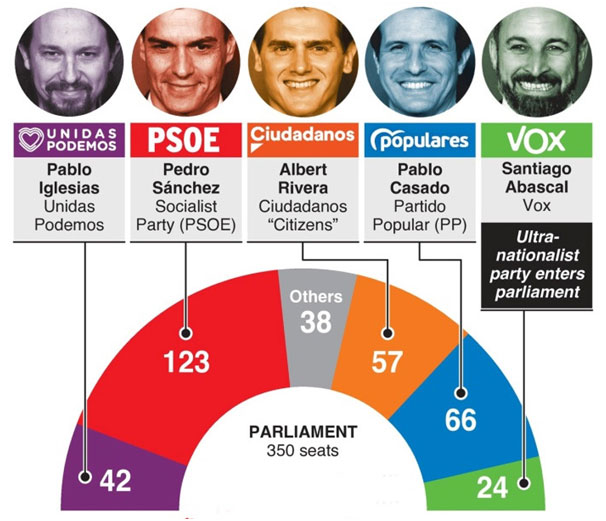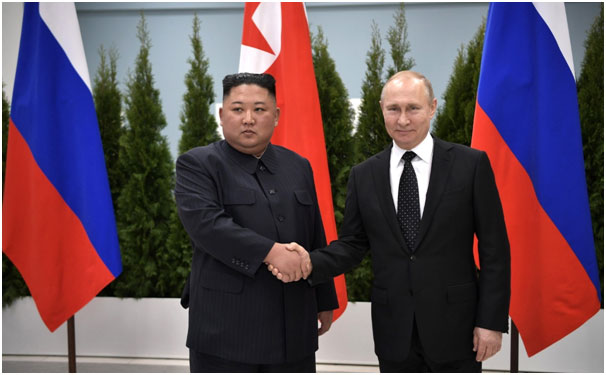The (Oil) Current is Flowing East
Soham Joshi

Image Courtesy: Wikimedia Commons
One of the most premier oil making company is the State-owned Saudi Aramco of the Saudi Kingdom. For the past 50 years, this oil giant has been catering to an occidental market. The US has started producing its own (shale) oil and is assuming the position of a bellwether in the oil market, Aramco is looking towards the east to sell off its crude supplies. Countries like China, India and other South East Asian countries are going to need a steady supply of oil in the next 40 years. These countries are paving the way in becoming major manufacturing hubs, they are also in a comfortable position to be in the top ten economies of the world.
It is natural for Aramco to find new takers for its oil but it also indicates the strengthening of the relationship between the Saudi world and new emerging economies. It also marks the loosening grip of the American hand on the Saudi Kingdom. Aramco whose name earlier was Arabian-American Oil Company has some of its investors from the US yet it is tilting towards the Asian market. Aramco’s delay in launching an initial public offering in the US and the strained relationship between the kingdom and the west is believed to be because of the Khashoggi murder that has compelled them to look towards eastern markets.
This new market comes with its fair share of difficulties as ExxonMobil has invested $10 bn in China. The USA also seems to be passing a legislature (ironically called NOPEC) that would enable various US-based energy companies to sue OPEC energy companies under US antitrust law. Such legislation would harm Aramco, to get around this problem Aramco is ready to trade in local currencies with its eastern partners. This may not happen but it does indicate a strain in the US-Saudi relationship.
Spanish General Elections 2019
Ishita Singh

Image courtesy: Wikimedia Commons
On April 28, 2019, Spain held its third election within the span of four year with Prime Minister Pedro Sanchez of the Spanish Socialist Workers’ Party (SPOE) coming back to power for a second term winning 123 of 350 seats in the parliament. In the recent past, Spanish politics has witnessed a chaotic upheaval owing to factors such as emergence of the Catalan crisis, the rise of far-right parties and the dissolution of former government led by Prime Minister Mariano Rajoy through a no-confidence motion on June 01, 2018.
Spain is essentially a democratic monarchy which had been under the dictatorship of Francisco Franco from 1939 to 1975 post which it adopted a new constitution in 1979. In the political realm, Spain was largely a two-party system dominated by SPOE and the People’s Party (PP). The People’s Party led by Rajoy had been in power for two consecutive terms (the tenure being four years each) after winning the general election, both in 2011 and 2015 until the no-confidence motion ousted it in 2018 with accusations of corruption. With Rajoy’s defeat, Pedro Sanchez occupied the position of the new PM of the state. However, only eight months into power, Sanchez’s budget was defeated by the Catalan separatists and the right-wing supporters in the lower house (Congress of Deputies). Rejection of the government is a clear indication of a loss of support for it. This thus led to the snap elections of April 2019. This period also saw the emergence of new parties on the national level challenging the dominance of the hitherto bipartisan system. Parties such as the Citizens-Party, Podemos and Vox have been successful in making a national breakthrough in the recent past.
The struggle for Catalonia’s secession from Spain has been continuing from as early as 1922 with the formation of the ‘Catalan State’ party by Francesc Macia. However, the movement changed its demand from independence to autonomy within Spain. The independence movement saw a surge again from 2010 with the constitutional court ruling against the ‘2006 Statute of Autonomy’. Referendums were held between 2009 and 2011 which recorded a soaring response supporting secession. Therefore, the Catalan crisis has been at the heart of the election with parties such as SPOE encouraging talks with the separatists while far right parties such as Vox oppose any such consideration. The world is looking forward to who Sanchez’s party will form a coalition with and how will they respond to the emerging challenges.
Kim - Putin Summit
Daneesh Sethna

Image courtesy: Wikimedia Commons
Two months after a failed summit meeting with President Trump, North Korea’s leader, Kim Jong-un, met President Vladimir Putin of Russia in a bid to rally international support for a sanctions relief and gradual nuclear disarmament that the Trump administration opposes. Putin claimed the United States and Russia had a common interest in preventing nuclear proliferation, in North Korea and elsewhere. He, however, also attacked American foreign policy suggesting that any military action taken by the United States against other nations complicated efforts to persuade North Korea to accept a security guarantee in exchange for nuclear disarmament.
According to Putin’s spokesman, the Kremlin believes the six-party talks on North Korea are the only efficient way of addressing the issue of nuclear weapons on the Korean peninsula. Those talks, which began in 2003, involve the two Koreas as well as China, Japan, Russia and the US. Before they collapsed in 2009, the six-party talks had produced agreements to halt North Korea’s nuclear program, but the North later abrogated them. Mr. Trump, has repeatedly cited these talks as the prime example of how past administrations’ dealings with North Korea had failed, claiming his own leader-to-leader diplomacy with the North Korean leader would be more effective in bringing about the North’s denuclearization.
Analysts believe this summit is a chance for Russia to show that it is a significant player on the Korean peninsula. Russia, like the US and China, is uncomfortable with North Korea being a nuclear state. The Kremlin is hoping to see a decrease in tensions on the peninsula. Nuclear activity seems to be continuing in North Korea, and Pyongyang said it had tested a new "tactical guided weapon" - thought to be a short-range missile - earlier in April.
Mr. Kim was accompanied on this trip by First Vice Foreign Minister Choe Son-hui and other veterans of six-party talks. Mr. Putin previously held a summit with Mr. Kim’s father and predecessor, Kim Jong-il, in 2002. Kim Jong-il also met in 2011 with Dmitri A. Medvedev, then the Russian president, in Ulan-Ude, a Siberian city near Mongolia.